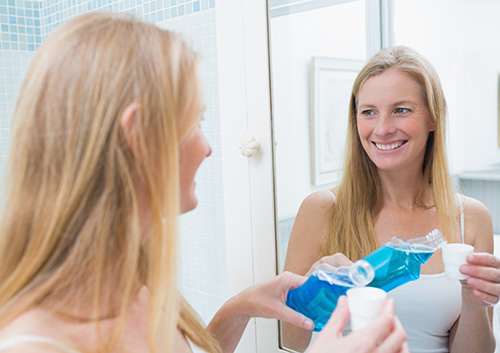What Your Dentist Checks During a Checkup
November 22nd, 2023

You’ve been going to Convivial Dental for a while now, so you pretty much know what to expect when you get to our Chestnut Hill, Massachusetts office.
You’ll see Drs. Cartsos and Zavras, your hygienist, and all the other members of your friendly dental team again. You’ll sit in a comfortable chair just your size. And you’ll have a checkup to make sure your teeth are healthy.
But once you’re sitting back in that comfortable chair, you might be wondering just what exactly gets checked during your checkup. The answer is, a lot!
- Checking Your Tooth and Gum Health
It’s important to have regular checkups because finding a small problem right away, like a weak spot in your tooth enamel, means your dentist can prevent it from becoming a bigger problem, like a cavity, later!
So your dentist will carefully examine each tooth for signs of tooth decay, using a little mirror to see behind your front teeth and around those hard-to-see teeth in the back of your mouth. The visible part of your smile doesn’t always tell everything about your dental health, though. At some checkups, you might need X-rays to make sure the insides of your teeth and their roots are healthy.
Oral health means more than just your teeth. That’s why your dentist will examine your gums and the inside of your mouth, too.
- Checking Your Bite
Drs. Cartsos and Zavras will check the way your teeth fit together when you bite, and can take X-ray images to show the size and shape of your jaw bones and the size and position of your permanent teeth before they even come in.
If your teeth and jaws fit don’t together just right, or if it looks like there might not be enough room for all your adult teeth to come in without crowding, your dentist might recommend pre-orthodontic or orthodontic treatment.
- Cleaning Your Teeth
Plaque can hide in hard-to-reach places between your teeth and around your gums. You might know that plaque can cause cavities if it’s not brushed away, but did you know that plaque can also hurt your gums? That’s why an expert cleaning is usually part of every checkup.
Your hygienist will use special dental tools and carefully remove any plaque you might have missed or any tartar (hardened plaque) that’s built up over time. Then after flossing and rinsing, you’ll have a clean, sparkling, plaque-free smile.
Bonus: Your dental hygienist can teach you how to brush and floss better if you’ve been missing a few spots!
- Can Your Teeth Use Extra Protection?
Once your teeth are cleaned and examined, your dentist might use a fluoride treatment or sealants to give your teeth extra protection against cavities.
Fluoride treatments help make your tooth enamel stronger. If your dentist thinks you need this kind of fluoride protection, your teeth will be coated with a special fluoride gel or varnish or foam. This treatment doesn’t take long and will strengthen your enamel for months afterward.
People’s molars get the most cavities because their uneven surfaces make good places for plaque and bits of food to hide from brushes. A sealant is a thin coating which is brushed on the top of your molars to prevent plaque from hurting your enamel.
- Checking In with You!
Part of your checkup is talking to your dentist about how you can protect and even improve your dental health.
- Find out whether the foods you eat make your tooth enamel stronger—or weaker.
- Discover how brushing and flossing help prevent tooth decay and gum disease, and see if your brushing and flossing skills need any work.
- Learn how to protect your teeth during active sports (hint: wear a mouthguard).
- If you have habits which can hurt your teeth, like nail biting, get advice on how to quit.
- Don’t forget to ask any questions you might have!
Your checkup might be a little different, because your exam is designed just for you, but there’s one thing which all of us can expect. Visit our Chestnut Hill, Massachusetts pediatric dental office for regular checkups, work together with your dental team, and you can expect a healthier, happier smile!









